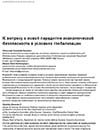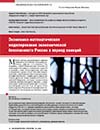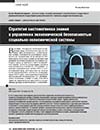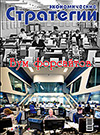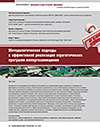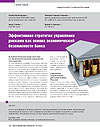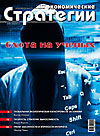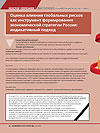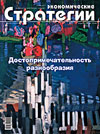
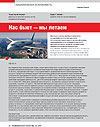
As evidenced by the economic theory, as well as by practical experience in our country and abroad, the key condition for overcoming the stagflation decline of the Russian economy is rapid and significant increase in investments by 30-50%. According to the RAS Institute of Economic Forecasting, the level of 5% annual increase in GDP can be achieved with an increase in the accumulation rate up to the target value set by the President of the Russian Federation at 27% of GDP by 2018. To catch up with the growth rate of the Chinese economy and to ensure the average growth rates, declared by the head of state, above the world average, the accumulation rate should be increased up to 35%. To this end, the annual growth of investments in fixed assets should be not less than 20%. The existing production facilities, occupied by half in engineering and construction, allow this. At the same time, economic growth will be achieved through increasing efficiency of the primary resources use as a result of introducing new technologies, increasing the level of primary commodities processing, advanced growth of mechanical engineering and due to production of a new technological order. The latter, provided its dynamic upgrading on an advanced technological basis, includes aircraft construction, as well as a complex of industries and technologies working for the aircraft industry. Thus, development and introducing into production of aircraft necessary for the domestic market and the markets of third countries, provide a significant synergistic effect both for the aviation industry itself and for a wide range of subcontractors. Focusing the state attention on the advanced development of the aircraft industry as a locomotive for the growth of a new technological structure retransmits the development impulse to the whole economy, will allow to achieve target goals both of increasing investment in promising areas, and in loading productive capacities, as well as providing employment through creation of new High-tech jobs. If it were not for the sabotage of the middle-level management in the aviation industry, the latter would have long ago become a point of growth. But, as A thoughtful analysis shows, such state of affairs simply does not suit many people.
Продолжить чтение



